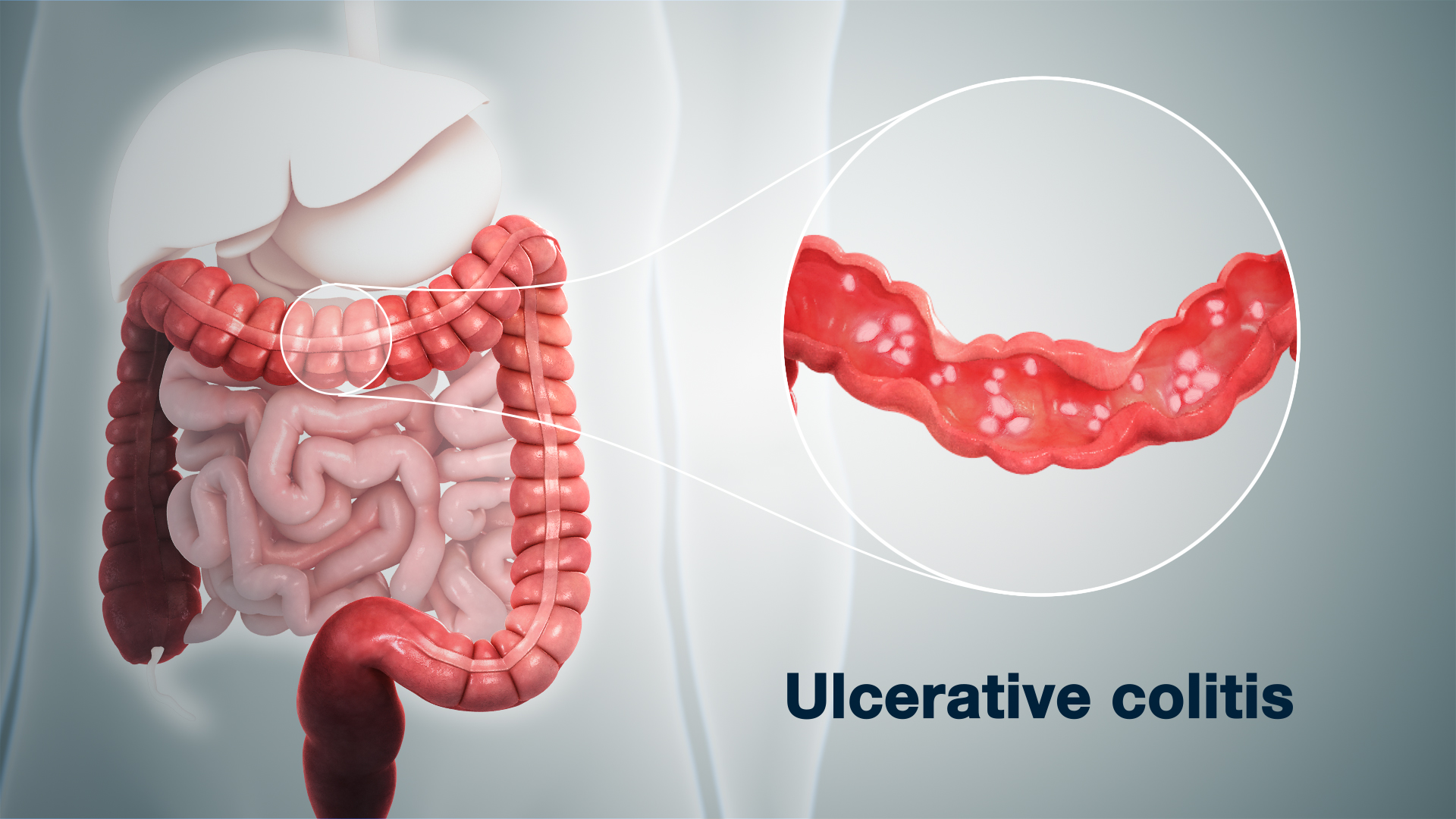Inflammatory Bowel Disease (IBD) are of many types, one of them is Ulcerative Colitis (UC). IBD is a group of diseases that affect the gastrointestinal tract. When the lining of the large intestine (colon), or the rectum, or both, get inflamed, this inflammation produces tiny sores on the lining of the colon which are known as ulcers. These ulcers may cause bleeding and discharge of pus and mucus. Ulcerative colitis normally begins from the rectum and spreads upwards involving the entire colon. The inflammation also results in frequent emptying of the bowels. This medical condition can affect anyone but mostly affects people in the age group of 15 to 35 years and above 50 years in men.

Types
There are various types of ulcerative colitis depending upon their location in the body. These are:
- Ulcerative proctitis: This is the mildest form of UC and is limited to the area closest to the rectum.
- Progmosigmoiditus: In this form, the inflammation occurs in the rectum and the lower end of the colon.
- Left-sided colitis: In this type, the inflammation spreads from the rectum to the left side of the belly resulting in cramps on the left side of the stomach.
- Pancolitis: The entire colon is affected in this form of UC.
- Acute Severe Ulcerative Colitis: This is a rare form affecting the entire colon.
Symptoms
Based upon where the ulcerative colitis occurs and the severity of the inflammation, the symptoms of this disease can vary. The most common signs and symptoms of Ulcerative Colitis are below:
- Pain and cramps in the abdomen
- Pain in the rectum
- Diarrhoea with pus or blood
- Fever
- Weight loss
- Fatigue
- Urgency to defecate
- Inability to defecate in spite of the urgency
- Bleeding from the rectum
Causes
The exact cause of this disease is not known but research shows that it could be the result of a malfunction of the immune system. The immune system defends the body from viruses and bacteria but sometimes an abnormal immune system response causes it to attack the cells in the digestive tract. This causes swelling, inflammation, and irritation which may give rise to ulcers. A specific cause for this immune system response leading to ulcerative colitis is not clear but there are a few factors that may trigger this malfunction. Some of these factors could be genes, a weak immune system and environmental factors including stress and an unhealthy diet.
Treatment
Treatment for such Colitis includes medicines, changes in diet, or even surgery. Medicines and diet change may not cure the disease but helps manage the symptoms and reduce inflammation. Surgery may cure UC but the entire colon and rectum may have to be removed. Diet changes that could help are reducing dairy products, reducing fiber and raw fruits and vegetables, and avoiding other foods that can worsen symptoms such as, spicy foods, alcohol, and caffeine. Eating smaller meals and drinking lots of liquids also help in reducing the inflammation.
This is a disease that can be difficult to live with but with the right treatment and dietary and lifestyle changes the symptoms could be reduced to a good extent and in some cases even long term remission in the disease may happen.
Disclaimer: The information in no way constitutes, or should be construed as medical advice. Nor is the above article an endorsement of any research findings discussed in the article an endorsement for any of the source publications.
Sources
https://www.healthline.com/health/ulcerative-colitis#diet
https://www.mayoclinic.org/diseases-conditions/ulcerative-colitis/symptoms-causes/syc-20353326








